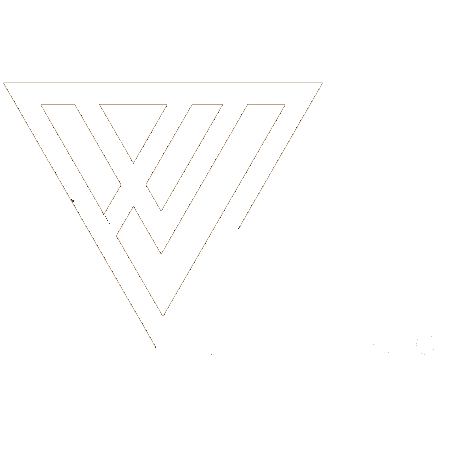Unity is used by different kinds of people around the world. Unity is a hobby tool, a professional tool, and a complete solution for business. You just have to select the right plan based on your needs. In this post, we will compare the features and price of Unity Free vs plus vs pro in detail. If you are totally new to Unity then don’t forget to check out our How to learn Unity guide.
This post has been updated based on the recent Update from Unity.
Though Unity plus and pro is not a requirement to make games, buying a plus or pro subscription gives a lot of advantage over the personal plan. Unity Plus will be retired from January 1 2024 and will be merged with Unity personal. If you are starting out now, you won’t be able to buy a plus subscription.
The main advantage of having a pro subscription is analytics, support and earning capabilities. Before the comparison you must know some details listed below, so you will be able to decide if you need a Unity free or pro subscription.
How much does Unity game engine cost?
Unity Game Engine is Free to Use until you start making tons of money. To get started you will need a personal license. You can get the license by downloading Unity and signing up on Unity website.
Understanding Unity licenses.
Unity engine has three major licenses you can use
- Personal(and Plus Merged)- Full powered Unity Engine free to use. Current Plus members will have to switch to pro or personal plans after January1, 2024. You can use Unity personal till you reach a revenue threshold of $200000/yr.
- Unity Pro- Full powered Unity Engine with tons of additional features like Unity learn, technical support, success advisor, professional training, Unity MARS and more. ($2,040/yr).
- Unity Enterprise: Customized package with custom pricing. Please contact Unity for more details.
Which license should I use?
If you are just getting started it’s best to go with a Unity personal license. You can upgrade to Unity Pro at a later stage when you think you can make revenue out of it or you have some customization requirement.
Unity Free vs Pro main difference
1. Unity Core Analytics
Unity Analytics is free and most of the data you require can be obtained in the Unity personal version itself. Pro gives you the ability to export data to an external analysis tool. live data and access to the heat map asset available in the asset store.
2. Advanced cloud diagnostic
This is really helpful in improving the user experience. You can get an insight into bugs and issues in your game before the user reports it. It makes it easy for you and your testers to collect and share crash and exception reports and user-generated feedback, during development and after launch, and keep users satisfied.
3. Splash Screen Customization
We want our games to show our logo and not Unity logo. This option is not available in Unity free. You can customize the splash screen in Unity pro. Unity has announced the availability of splash screen customization for free users in the near future.
4. Income Limit
You can use the free version only till your revenue is less than $200K/yr. After that you need to buy the Pro subscription.
5. Discount on Unity Assets
Pro users get regular discounts on Unity Assets and also get some paid assets for free along with the plan. If you buy many Unity assets for your game then you might consider the Pro version.
6. Cannot publish to console
Starting from 2021, Unity announced that its user won’t be able to publish to console platforms without Unity pro subscription. So, if you are planning to make a game for console then Unity pro is a must.
From January 1, 2024 Unity pro and enterprise users will have to pay per install of their game or have to pay a 2.5% of the game’s revenue if the revenue crosses $1M/yr. Users can choose which revenue share model they want to use.
What is Unity Runtime Fee
The Unity Runtime Fee is a cost associated with the use of Unity’s runtime code when a game or app created with Unity is downloaded and installed on a user’s device. This fee helps support the ongoing development and maintenance of the Unity runtime code, which is essential for ensuring compatibility and performance across multiple devices where Unity-powered games and apps are used.
This fee is added to include the AI capabilities along with runtime but users are not happy with it.
How is runtime fee Calculated?
The calculation of the Unity Runtime Fee is based on several factors, including the number of installs, the country in which the installs occur, and the user’s Unity plan. The fee is determined by multiplying the applicable rate, based on these factors, by the number of eligible installs. Let’s consider some examples to understand better.
Unity Personal
No runtime fee is applicable for Unity Free plan users.
Unity Pro example
If you are on a Unity pro plan here is an example from Unity website
Revenue from last 12 months – $2M USD
Lifetime installs – 5M
The Unity Runtime Fee will apply to this game, as it surpasses the $1M revenue and 1M lifetime install thresholds for Unity Pro. Let’s look at the game’s installs from the last month:
Prior month installs (Standard fee countries) – 200K
Prior month installs (Emerging market fee countries) – 100K
The fee for install activity is $23.5K USD, calculated as follows:
(100K x $0.15 (first tier for standard fee countries)) + (100K x $0.075 (second tier for standard fee countries)) + (100K x $0.01 (fee for emerging market countries)) = $23.5K USD
Apart from this they also need to pay for the Unity pro subscription.
Unity Fee structure for Pro vs Enterprise
| Unity Product | Unity Pro | Unity Enterprise |
|---|---|---|
| Revenue Threshold (USD) | $1,000,000 (last 12mo) | $1,000,000 (last 12mo) |
| Install Threshold | 1,000,000 (life to date) | 1,000,000 (life to date) |
| Installs over the Install Threshold Standard monthly rate | ||
| 1-100,000 | $0.15 per install | $0.125 per install |
| 100,001-500,000 | $0.075 per install | $0.06 per install |
| 500,001-1,000,000 | $0.03 per install | $0.02 per install |
| 1,000,001+ | $0.02 per install | $0.01 per install |
| Installs over the Install Threshold Emerging market monthly rate | ||
| 1+ | $0.01 per install | $0.005 per install |
The runtime threshold is for lifetime and this is charged irrespective of whether your game is free or paid.
Runtime Fee Calculator
You only need to calculate the runtime fee if you have exceeded the revenue threshold for each license. Here is what Unity has to say:
Unity Personal: No Runtime fee
Unity Pro and Unity Enterprise: The Unity Runtime Fee will apply to games that have made $1,000,000 USD or more in the last 12 months AND have at least 1,000,000 per-game lifetime installs. Users can alternatively choose to pay a 2.5% of the revenue.

Conclusion: Unity Free vs Pro
Unity free license has no limitations when it comes to game making. The Unity pro requirement comes in when you are making money with your games or if you want to publish to consoles.
If you are considering scaling up your game development and expect monetary returns then Unity pro is a requirement. Both Unity free and pro have the tools needed for you to grow your game development business to the next level. Which one to buy depends on what tools you need.

